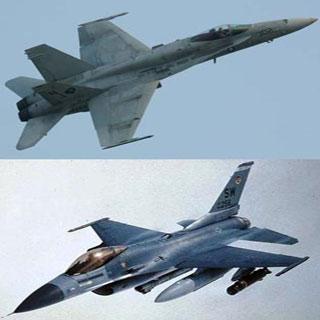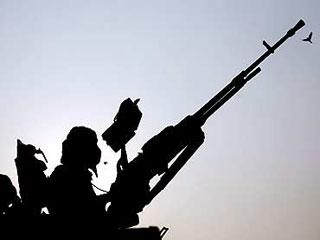
The F-18, F-16 aircraft are out of IAF's bid for MMRCA programme
WASHINGTON (PTI): India's decision to exclude two American companies, Boeing and Lockheed Martin, from its estimated USD 11 billion 126 fighter jet deal is strategically short-sighted and would be a setback to Indo-US ties, well-known American experts on South Asian affairs have said.
"The Indian decision to eliminate the two US firms from the MMRCA competition is strategically short-sighted. There is little doubt that the decision will set the US-India relationship back," said Lisa Curtis of the Heritage Foundation, who is known as one of the best known friend of India in Washington's academia and think-tank.
Ashely Tellis of the Carnegie Endowment for International Peace said the move will raise questions about why the United States should bend backwards to accommodate India.
"You can imagine that there is great disappointment within the US government with the decision. It will lead many in the US to conclude that India has settled for a plane, not a relationship, and if that is the case, it will raise questions about why the United States should bend backwards to accommodate India," he said.
"I think the way the decision was announced was also unsettling: the GOI (Government of India) knew full well the importance the administration attached to this sale. A quiet intimation of the coming decision would have helped," said Tellis who played a key role in the Bush Administration during the civilian nuclear deal.
"A wasted opportunity to strengthen US-Indian relations," observed Michael Krepon, co-founder of Stimson, and director of the South Asia and Space Security programmes.
However, this did not come as a surprise to Christine Fair, Assistant Professor Georgetown University.
"I have been dubious for years that India would purchase these platforms from the United States. As is well known, such sales were trumpeted as being possible in the wake of the Indo-US nuclear deal and indeed likely," she said.
"I was also suspicious of those claims at the time and remained so. Over the long run, I doubt that this will affect the US-India relationship and hopefully it will vitiate some of the Panglossian optimism that has surrounded the prospects of US large-ticket sales to India. There are other opportunities that the two countries should be exploring that are important and less politically laden," Christian Fair said.
Curtis said, two developments taken together, stalled civil nuclear cooperation and the decision to de-select the US companies for the fighter air craft deal -- threaten to cast a pall on relations for the remainder of the Obama administration.
"After a highly successful Obama visit last fall, in which the US President gave a nod to Indian Security Council membership, Washington officials will begin to ask what benefits the US derives from its dedicated efforts to improve the relationship," she said.
Purchasing US advanced air craft would serve India's own geo-strategic interests, Curtis argued adding that India is increasingly conducting military training exercises with the US and in coalition with other Asian Pacific partners, and India would stand to gain more in terms of its power projection capabilities, were it to choose a US platform.
"Given the increasing military and economic influence China is exerting throughout the region, it simply does not make sense from a geopolitical perspective for India to shun the US companies and de-emphasise military partnership with the US," Curtis said.
Tellis said the "down select" was made by the Indian Government entirely on the basis of the technical evaluations?the cost of the aircraft or the strategic considerations did not enter into the picture.
"The decision clearly represents the IAF's choice, which the MOD (Ministry of Defense) has obviously gone along with as expected. Being a fighter dominated service, the IAF went for the "hot rods."
"Both the fighters down selected are extremely agile platforms: they obviously represent a fighter pilot's dream because they excel where maneuverability, acceleration, and flight envelopes are concerned," he argued.
"Their big weakness, however, is their primary sensor neither has an AESA radar yet but the bigger questions are not technical, but strategic: Do these aircraft represent the best value for the IAF? Do these aircraft represent the best investments for India overall?" he said.
"What this leaves India with now is a choice between two incredibly expensive fourth-generation jets ( 85m+ for the Rafale and the 125m+ for the Eurofighter) and if India goes with the former, it will end up literally bailing out Dassault which has not sold a single Rafale abroad yet," Tellis said.
"Anyway, whatever India goes with, I hope the commercial negotiations are concluded quickly and that the chosen fighter enters the force soon. The IAF force structure will simply dissolve without the MMRCA and the LCA," he said.
 Previous Article
Previous Article Next Article
Next Article









The Indian Air Force, in its flight trials evaluation report submitted before the Defence Ministry l..
view articleAn insight into the Medium Multi-Role Combat Aircraft competition...
view articleSky enthusiasts can now spot the International Space Station (ISS) commanded by Indian-American astr..
view article